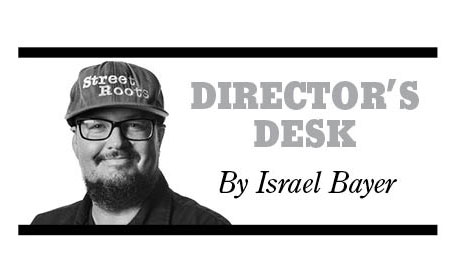People ask me all of the time, “What do you think of Mayor Wheeler?”
I tell them, I don’t know the mayor well, but from my short time working with him he’s one of the smartest individuals I’ve ever met. He also isn’t afraid to tell you exactly what he thinks, and he can juggle more things than your average bear. Saying that, as with many mayors, being smart doesn’t always translate to being able to bring the people with you.
Trying to thread the needle and find justice on so many issues at one time can feel almost impossible for the larger community and any mayor, especially a new mayor.
It doesn’t help that Portland’s current mayor is inheriting a social justice community that feels beaten down. After all, Ted Wheeler is our fifth mayor in the past 20 years.
Every time the community gets going in one direction, the brakes are put on due to the nature of having to change administrations. Mayor Vera Katz had a long run, for better or worse. Tom Potter, Sam Adams and Charlie Hales were one and done.
Who among us can even remember all of the political promises and slogans we’ve heard over the past decades in city politics? Bureaus have been shuffled, time and again. Proclamations are made. Massive public planning and visioning work has been done and then abruptly dumped, only to start all over again.
It all makes for great political theater and sensational headlines in the newspaper, but it’s hard for maintaining a long-term strategy on critical issues facing our city.
Portland has paid the price. The changeover in political leadership is one of the biggest reasons I believe the housing crisis occurred without any real housing policy in place to counter the harsh reality of years of gentrification, skyrocketing rents and the lack of affordable housing stock.
I suppose hindsight is 20/20, but the pain is real. Portland, that funky little West Coast town, is losing its ability to support people of color and the middle class. Some would argue we’ve already lost our city, and I wouldn’t argue with them. It’s almost impossible to see a future for yourself in Portland if you don’t have the capital to play the game.
So the question looms — how does one bridge the gap between promises broken in the past and generating the necessary political will to address things such as police accountability, gentrification, racial justice, homelessness and housing policy, the environment and more?
Throw in a Trump administration that seems hell-bent on tearing down anything good that we have all collectively worked for, and it can feel impossible for both the community and a mayor to find a space to be able to work toward the common good of the community.
The reality is Ted Wheeler faces an almost impossible task as it relates to many of these issues. On the police accountability front, until changes are made, nobody – and I mean nobody – is actually listening. Possibly it’s unfair to the mayor, given all of the circumstances, but then again, he did run to the left of his opponent on reforming the Police Bureau. Time will tell.
On the housing and homeless front – I think it’s important to give the mayor and his team some space. It’s such a complex issue. I’d much rather have a mayor come in and evaluate the playing field before acting than simply delivering on a bunch of campaign slogans that may or may not work given the information he has now. It may be frustrating to some, but it’s the right move.
Protesters can shout until they are blue in the face, but I’m grateful the mayor isn’t leading with heavy law enforcement and the criminalization of the homeless agenda. I’m grateful for his work already to support tenants and what I hope he does to continue to support tent cities and alternative housing pilots throughout the city.
FURTHER READING: Israel Bayer talks to Wheeler about housing
The reality is every special interest group in the city wants something done on homelessness, yesterday. You’re never going to please everyone. It’s my opinion that the mayor has already set the stage for being a great mayor on the issue. It’s a matter of execution and bringing the people along. If the end goal is to manage the problem than, yes, it will eventually go sideways. We need courage and vision and to continue to go big on the housing front.
So, to the question, what do I think of Mayor Wheeler? I think he’s a mayor who cares a great deal about the city where he lives. I also believe that he doesn’t have history on his side. It will be up to him and his administration to write the next chapter and change that story. Again, time will tell.
Israel Bayer is the executive director of Street Roots. You can reach him at israel@streetroots.org or follow him on Twitter @israelbayer.


